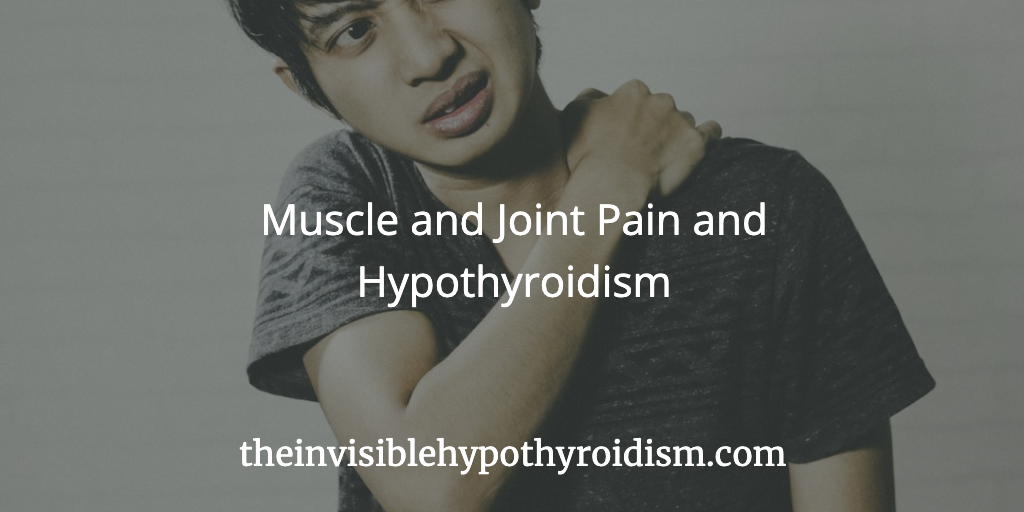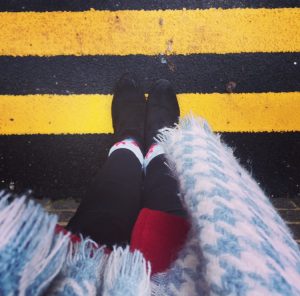Originally published on 20th June 2017 Last updated on 12th February 2024
Many people living with hypothyroidism and / or Hashimoto’s complain of muscle and joint pain being among the most bothersome thyroid symptoms.
As well as the intense fatigue that hypothyroidism can cause, aches, pains, stiffness and weakness in joints (such as the knees and fingers) and muscles (such as the calves, back and feet) are well reported. I’ve had experience with it myself.
It can keep us awake at night, cause us to need regular painkillers just to get through the day and make physical activity difficult to bear.
Related Post: Foot Pain and Hypothyroidism
Learn more about how to make the most of your health with hypothyroidism. The book Be Your Own Thyroid Advocate: When You’re Sick and Tired of Being Sick and Tired builds on this article in detail and explains how to thrive with thyroid disease.
Muscle and Joint Pain with Hypothyroidism
Yes, it is expected that muscle pain will appear after a long walk, workout or other activity that has caused overexertion, but it shouldn’t be expected as part of your day to day life when you haven’t exerted your muscles very much.
However, it continues to haunt many people living with thyroid disease, whether they do much physically all day or not.
Yes, muscle and joint pain can be another symptom of hypothyroidism.
Muscle and joint pain caused by hypothyroidism is known as hypothyroid myopathy, and can occur all over the body, though most commonly in the legs, feet, arms, hands and back and can range from mild to severe.
It also includes cramping, stiffness and weakness, but hypothyroid myopathy can also lead to carpal tunnel syndrome or frozen shoulder. Some thyroid patients may also have been diagnosed with fibromyalgia, a separate condition that causes pain all over the body or at specific points, when they are actually experiencing hypothyroid myopathy.
What Causes Pain in Thyroid Disease?
1. Low Thyroid Hormone Levels
Ensuring that all your thyroid levels are optimal is an important first step (as opposed to just ‘in range’). Free T3 levels are particularly important for muscle pain, but many people also feel muscle pain when their thyroid antibodies are high (Hashimoto’s), so it can help to lower these.
Find a UK full thyroid panel here and a US one here.
2. Low Vitamin and Mineral Levels
Various vitamin and minerals, if low, can also lead to muscle and joint pain. The most common are Vitamin D, B12, iron, magnesium and folate. Vitamin D can especially cause joint stiffness and pain, so ensuring your levels are optimal is key.
Magnesium spray is popular, if you’d prefer to avoid adding another supplement or tablet to your daily regimen and acupuncture has been helpful to some thyroid patients, too.
Optimal Levels and Test Options:
Vitamin D – 50-80 ng/ml, but as close to the top of the range as possible. (UK test option here. US test option here.)
B12 – Close to top of range. (Test option here.)
Folate/Folic acid – In the top quarter of the range. (Test option here.)
Ferritin – 70-90 ng/ml, being slightly higher for men. (Test option here.)
Iron, T.I.B.C., Transferrin Saturation – well within range. (US test option here.)
Magnesium – Mid-range or higher. (UK test here)
Selenium – US test option here.
3. Adrenal Dysfunction
I personally found that I stopped having any foot pain once the Hashimoto’s was in remission and my high cortisol ‘adrenal dysfunction‘ was addressed. As a part of all this, I raised my B12, Vitamin D and magnesium levels to be well within their ranges, as well as reducing my thyroid antibodies to almost zero, reducing inflammation.
How I Solved “Adrenal Dysfunction”
4. Fluid Retention
Fluid retention, another somewhat common hypothyroid symptom, can cause pain, too. It’s most often seen around the ankles and feet and worsens with physical activity. This is also often solved with optimal thyroid and vitamin levels.
5. Dietary Considerations
Gluten-caused inflammation can cause joint and muscle pain in some people and many of us with thyroid disease may feel better on a gluten-free diet.
My muscle aches and pains resolved after going gluten-free.
Other food sensitivities could be causing your joint pain too.
Short-term Relief
Short term treatments for hypothyroid myopathy can include massaging the affected area, which increases blood flow and eases aches and pains, or a warm bath or foot soak which helps to relax muscles, bonus points if you use Epsom salts, which is a popular trick for relaxing and relieving tired and achy muscles. You can get the ones I use by clicking here.
If you’ve explored all of the above and are still suffering with pain, it may be time to talk to a rheumatologist for further evaluation. Rheumatologists are experts in joint and muscle problems, and treat arthritis, carpel tunnel, some autoimmune conditions, various musculoskeletal pain disorders, fibromyalgia and tendonitis.
Do you have muscle or joint pain? Let me know in the comments.
You can click on the hyperlinks in the above post to learn more and see references to information given.
Related article: Foot Pain and Hypothyroidism

The book Be Your Own Thyroid Advocate: When You’re Sick and Tired of Being Sick and Tired, which builds on this article in detail. Reclaim your thyroid healthy life.






